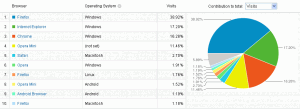I was a bit hesitant to write about this new service after the rise and fall of PayMPESA, but here goes:
Trinc Money seems to be a new service that allows you to transfer money to and from PayPal via MPESA. yes, this means that it lets you both withdraw and deposit money into PayPal using MPESA. Sounds good, eh?
Costs
Apart from the usual PayPal and MPESA fees, Trinc Money charges what seems to be a used to charge a standard flat Kshs 1000 transaction fee. Depending on how much you send, this can work out to be extremely cheap. But is it sustainable?
They have since updated their fees to 6.9% + KES.250
Sustainability
I worry about this service. Does it have the required blessing from PayPal? As far as I know, PayPal does not allow this kind of money transfer service. If your remember correctly, other services got around this issue by packaging themselves as selling “vouchers” which could be redeemed for money. This seems not to be the case with Trinc Money.
Additionally, PayPal is rumored to be very very close to launching fully in Kenya. Would this not outright kill TrincMoney?
I have reached out to Trinc Money for comment on both of the above.
I am sorry if I feel overly critical of TrINC Money, I am just being prudent. I am aware that PayPal frowns upon this kind of “money transfer” business working through PayPal and I would not want the readers of Like Chapaa to suffer any loss as a result of reading this article.
So, dear readers, what do you think of this? Has anyone tried to use Trinc Money?
Response from TrINC Money:
Trincmoney is neither a money transfer service nor a currency exchange service. What we do provide is a platform for registered PayPal users to send electronic PayPal value to the Trincmoney PayPal account. These funds are not withdrawn and are valid PayPal transactions initiated by registered PayPal users.
Upon a customer’s request, our service sends our customers electronic monetary value depicted in ones M-PESA Account representing an equal amount of Cash held by the MPESA Holding Company Limited and which may be redeemed through an M-PESA Agent for an equal amount of legal tender in the Republic of Kenya, to their MPESA registered mobile numbers. Note that MPESA electronic value is NOT legal tender.
With regard to money laundering, Trincmoney carries out the required due diligence on customers who send us money and who receive money from us.
If PayPal were to open up shop on Kenya it would be a blessing to a lot of people who use the Internet to send and receive money. Trincmoney will survive simply because a PayPal withdrawal takes 4 working days to effect while our service is effected within the hour. Also chances are that the charges will be higher.
I hope I have answered your queries. I have also read your blog on our service. Please note that we changed our rates and are now charging 6.9% + KES.250. Check out our Facebook Page and Twitter handle and sample some of our customer reviews.
